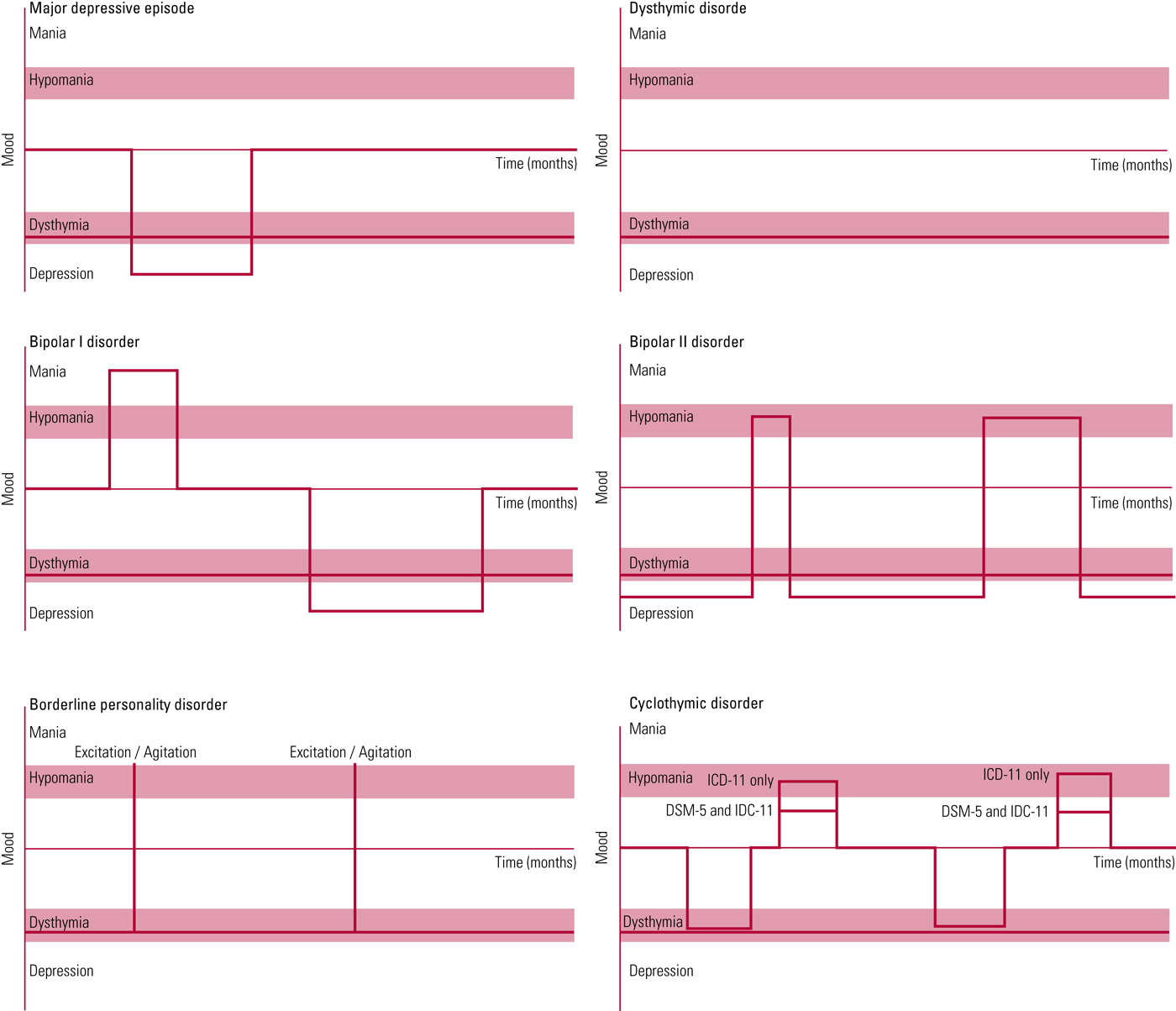

Mood changes can be common in borderline personality disorder since people with this condition have very unstable emotions. It is also important to differentiate between symptoms that occur only during depressive or manic episodes. Like thyroid problems, head injury, alcohol or drug abuse, and medications. When diagnosing either borderline personality disorder or bipolar disorder, it is important to rule out other potential causes of symptoms. To be diagnosed with bipolar personality disorder, an individual must have experienced at least one hypomanic episode (a period of elevated mood) and one major depressive episode.” What Are the Key Things to Be Taken Care of While Doing a Diagnosis? However, several presentations within bipolar disorder describe patterns or types.įrom the DSM-V: “Bipolar personality disorder is a pattern of traits and behaviors that indicate a person has a diagnosis of bipolar I or II disorder.

Bipolar disorder dsm 5 manual#
There is no official diagnosis of “bipolar personality disorder” in the Diagnostic and Statistical Manual of Mental Disorders, Fifth Edition (DSM-V). DSM-5 On Borderline Personality Disorder vs Bipolar Disorder Those with borderline personality disorder typically have extremely unstable emotions- swinging from intense idealization of others to devaluation and anger. The key difference between bipolar disorder and borderline personality disorder is that while people with bipolar disorder experience uncharacteristic highs (mania) or lows (depression).

Bipolar disorder dsm 5 skin#
Self-harming behaviors like cutting the skin with sharp objects etc.Extreme impulsivity in areas that are self-damaging (e.g., spending money irresponsibly or promiscuous sex).Intense and unstable relationships: People who suffer from this disorder tend to have very intense, quick-changing, and unstable personal relationships.Fear of abandonment: This can be noticed through panic attacks or constant worry that your partner will leave you.What Are The Symptoms of Borderline Personality Disorder?Īccording to the DSM-IV ( Diagnostic and Statistical Manual of Mental Disorders, Fourth Edition), a person suffers from borderline personality disorder when he/she exhibits at least five out of nine specific symptoms. They may also have problems maintaining stable relationships. As a result, they may act impulsively and engage in risky behaviors. People with a borderline personality disorder may experience intense emotions and have difficulty regulating their thoughts and feelings. What Is a Borderline Personality Disorder?Ī borderline personality disorder is a mental health condition that is characterized by unstable moods, behavior, and relationships. 4 What Are the Key Things to Be Taken Care of While Doing a Diagnosis?.3.1 DSM-5 On Borderline Personality Disorder vs Bipolar Disorder.3 Borderline Personality Disorder vs Bipolar Disorder.

2.1 What Are The Symptoms Of Bipolar Disorder?.1.1 What Are The Symptoms of Borderline Personality Disorder?.1 What Is a Borderline Personality Disorder?.


 0 kommentar(er)
0 kommentar(er)
